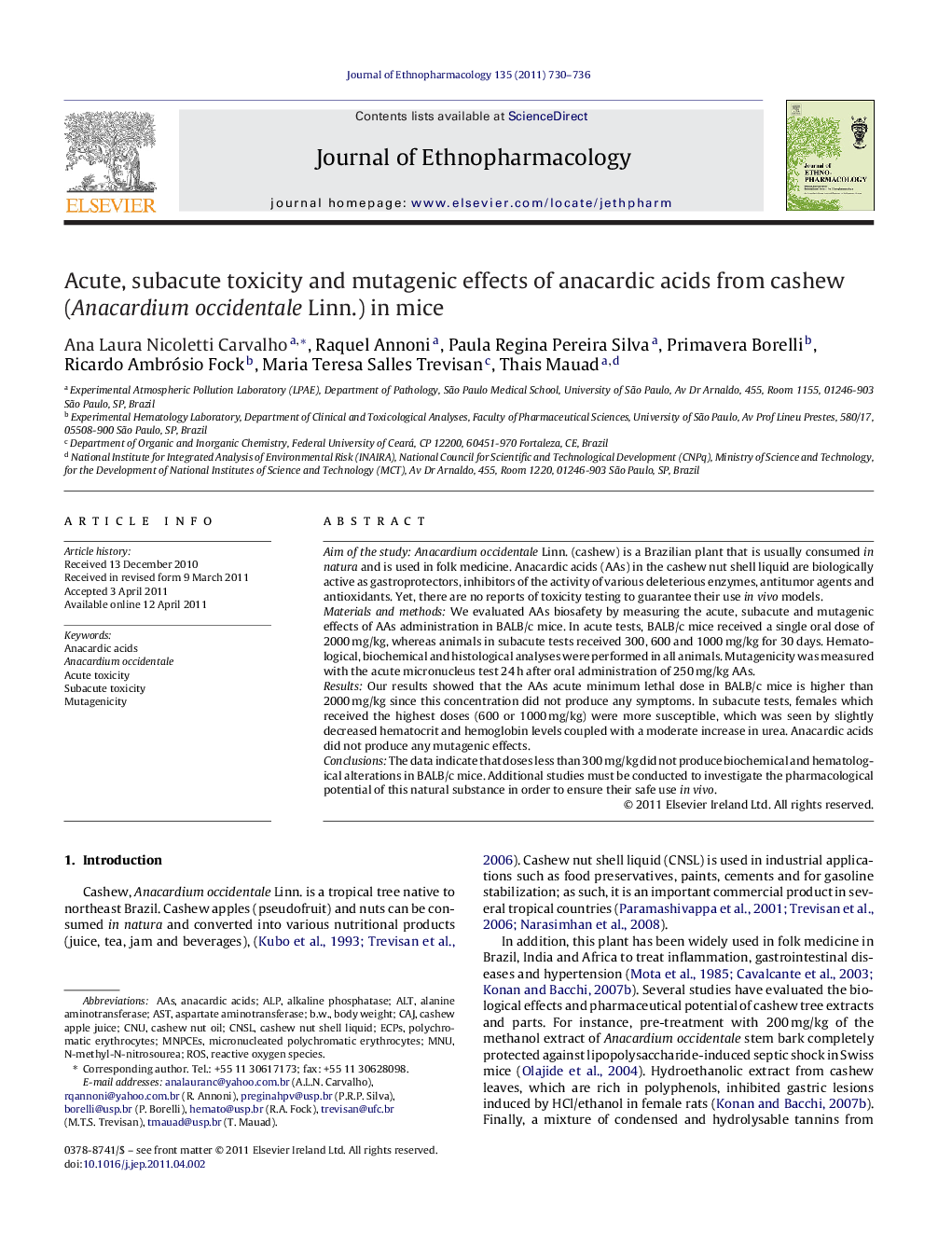| کد مقاله | کد نشریه | سال انتشار | مقاله انگلیسی | نسخه تمام متن |
|---|---|---|---|---|
| 5840176 | 1124008 | 2011 | 7 صفحه PDF | دانلود رایگان |

Aim of the studyAnacardium occidentale Linn. (cashew) is a Brazilian plant that is usually consumed in natura and is used in folk medicine. Anacardic acids (AAs) in the cashew nut shell liquid are biologically active as gastroprotectors, inhibitors of the activity of various deleterious enzymes, antitumor agents and antioxidants. Yet, there are no reports of toxicity testing to guarantee their use in vivo models.Materials and methodsWe evaluated AAs biosafety by measuring the acute, subacute and mutagenic effects of AAs administration in BALB/c mice. In acute tests, BALB/c mice received a single oral dose of 2000Â mg/kg, whereas animals in subacute tests received 300, 600 and 1000Â mg/kg for 30 days. Hematological, biochemical and histological analyses were performed in all animals. Mutagenicity was measured with the acute micronucleus test 24Â h after oral administration of 250Â mg/kg AAs.ResultsOur results showed that the AAs acute minimum lethal dose in BALB/c mice is higher than 2000Â mg/kg since this concentration did not produce any symptoms. In subacute tests, females which received the highest doses (600 or 1000Â mg/kg) were more susceptible, which was seen by slightly decreased hematocrit and hemoglobin levels coupled with a moderate increase in urea. Anacardic acids did not produce any mutagenic effects.ConclusionsThe data indicate that doses less than 300Â mg/kg did not produce biochemical and hematological alterations in BALB/c mice. Additional studies must be conducted to investigate the pharmacological potential of this natural substance in order to ensure their safe use in vivo.
Journal: Journal of Ethnopharmacology - Volume 135, Issue 3, 1 June 2011, Pages 730-736